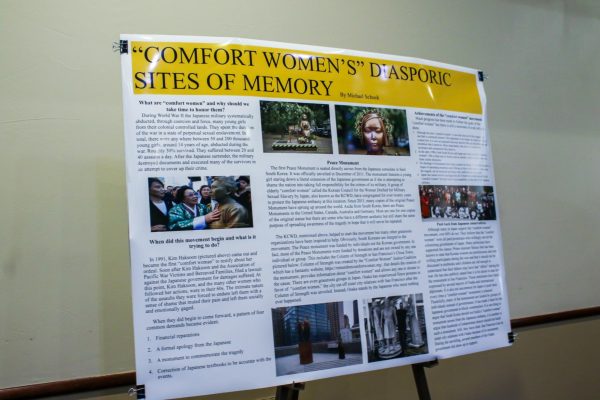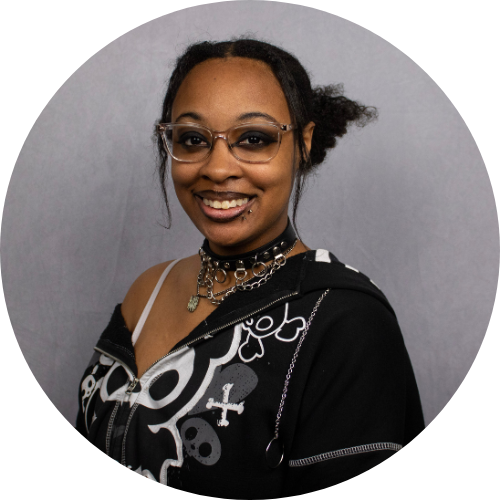The International Conference on Genocide at Sacramento State continued a second day with a new lineup of panelists and keynote speakers on Friday.
Friday’s panels consisted of conversations around gender, disability, mental illness, trauma and healing. Five concurrent panels were held from 9:00 a.m.-10:15 a.m., including discussion about gendered violence against targeted populations.
Guest speaker and Author Dimitrie Sissi Mukanyirigira, wrote a true recounting of a genocide survivor in “Do Not Accept To Die.” During the panel, she discussed femicide in relation to the genocide against the Tutsi and the specific trauma women and children experienced.
Mukanyirigira said that 80% of children lost their families and nearly half a million women and children were sexually assaulted as a means of control. She said survivors were left with lifelong trauma and illnesses as a result of the genocide.
A concurrent panel discussed similar topics while exploring disability and mental health during and as a result of genocide. Panelists discussed how the dehumanization of people with disabilities becomes normalized during genocide due to already existing negative stigmas.
Founder and CEO of Palestinian Public Health Hiba El Khatib said that while having a disability in general puts you at risk, navigating a genocide with one is extremely difficult. El Khatib spoke about how that relates to her experiences with the current conflict in Gaza.
El Khatib said that these problems apply not just to those who came into the conflict with disabilities, but those who got their disabilities from it.
“If you’re trying to manage your disability and live a healthy life but you don’t have access to resources like water or wheelchairs or even a safe, smooth environment that isn’t composed of damaged homes and rubble,” El Khatib said. “Then you cannot live a healthy and safe life as a person with a disability.”
The panel concluded after speakers agreed the stigma around people with disabilities ultimately makes harder for them when living through genocide. The topic was also broached in a broader sense during the 13th panel, “Erasing the Past: Confronting Genocide Denial and the Battle for Collective Memory.”
Sac State Associate Professor of humanities and religious studies Harvey Stark held a presentation on the Holocaust and how genocide can be different when its legalized by the government. Similar to discussions related to violence against people with disabilities, government legalization of violence or genocide normalizes the discrimination, Stark said.
“Government endorsement legitimizes things and we see that in our own country,” Stark said. “Just because something’s legal doesn’t mean it’s just, but the legal veneer makes it seem okay for the populace.”
Stark said that the lack of real shared experiences and real accounts of people who were affected by tragedies, like the Holocaust, make it easier for people to deny its impact.
“People can deny something when all they see are the numbers, and denial is part of hate,” Stark said. “But denial is also part of the incredulity.”
At 10:30 a.m. the first round of concurrent sessions concluded, and the United Nations Under-Secretary General and Special Adviser on the Prevention of Genocide Alice Wairimu Nderitu gave a speech on prevention policies.
RELATED: 6th International Conference of Genocide arrives at Sac State
“By enhancing our abilities to learn from the past, we honor the victims and strengthen our own abilities to identify all the signs and indicators of violence that could lead to genocide and related crimes,” Nderitu said.
When warning signs for genocide and other forms of violence are seen, Nderitu said that prevention policies will help the development of response mechanisms and assessments that could predict future conflicts.
“Despite the obvious opportunities for prevention, we must be humble in recognizing that when it comes to learning the lessons of the past, we as a world have been very slow to put in place effective prevention policies,” Nderitu said.
The second set of concurrent sessions began around 1:30 p.m. These panels included discussions of the narratives around genocide and violence, healing and remembrance.
The Journeying Home Together: Communal Healing Initiative panel was led by the founder of Kafenia Peace Collective, Mary Jane Moutsana. The session was more akin to a group therapy session than a discussion panel, with the goal being to give attendees a place to open up and tackle their trauma head-on through drawing, writing and connecting with one’s ancestors.

“We can turn to our ancestors and they can give us wisdom to help us because the conditions are really hard in the world and it’s hard to feel hopeful,” Moutsana said. “But when we stick together and say ‘I don’t want to carry this anger anymore, I don’t want to carry this pain,’ we start to look at it and move through it.”
Moutsana said that the meaning of “Journeying Home Together” itself is to not only feel at peace with yourself, but to find peace together. It was encouraged to ask your ancestors for guidance on how to move forward.
“We’re on a journey, and I don’t know when we’re getting to our destination, so we’re on this journey together,” Moutsana said. “Home means home to ourselves, to be embodied and be present. So it means coming back to ourselves and coming back to the community together.”
The day concluded with the plenary session on conflict and resolutions, before leading into dinner in the University Union Ballrooms and a performance from the California Indian Dance Group. The second day of the conference wrapped up around 6:30 p.m.
The first panel of the third and final day of the conference will start at 9 a.m. Saturday.
Additional reporting by Emilie Jocson, Aliza Imran and Jocelyn Hill.
Correction: Nov. 18, 2024
A previous version of this article used an incorrect title for United Nations Under-Secretary General and Special Adviser on the Prevention of Genocide Alice Wairimu Nderitu. The article has been edited to ensure the correct title is in place.

































































































































